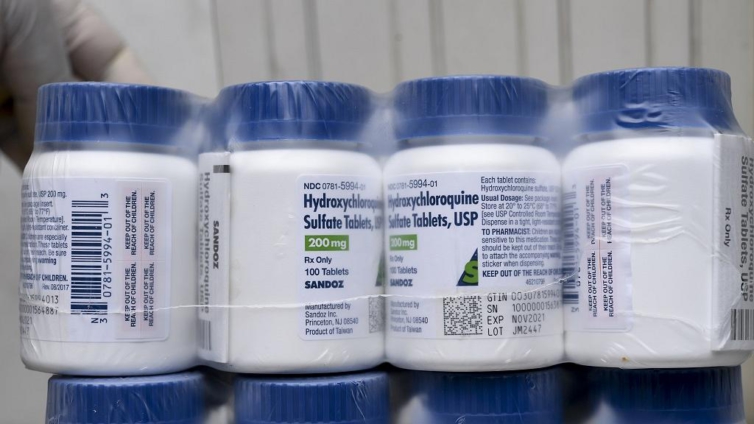Senegal will continue treating COVID-19 patients with hydroxychloroquine, a senior health official said on Wednesday, despite a recent study indicating that the anti-malarial drug is ineffective and potentially harmful.
Authorities in the West African state opted to provide consenting patients with the drug early on during its coronavirus outbreak, citing promising clinical results.
Chloroquine and its derivative hydroxychloroquine have been used for decades against malaria and are considered cheap and safe when used correctly.
US President Donald Trump promoted its use and stunned his own administration earlier this month by revealing he was taking it as a preventive measure against the virus.
But even as countries around the world rushed to use the anti-malarials to fight COVID-19, experts urged caution and warned that the drugs can have potentially serious side effects.
A study of nearly 100,000 COVID-19 patients, released on Friday, appeared to confirm some of those concerns.
Published in the medical journal The Lancet, the study found that chloroquine and hydroxychloroquine do not benefit hospitalised patients — and even increase the risk of death and heart arrhythmia.
It recommended against using either drug outside of clinical trials.
Abdoulaye Bousso, who heads Senegal’s Centre for Health Emergency Operations, told AFP on Wednesday that the country’s hydroxychloroquine treatment programme would nonetheless continue, without offering further details.
The infectious-diseases doctor who is spearheading Senegal’s treatment of COVID-19 patients, Moussa Seydi, did not respond to requests for comment. Nor did the health ministry.
The World Health Organization said on Monday it had temporarily suspended clinical trials of hydroxychloroquine as a potential treatment for coronavirus following the Lancet study.
Scientific community divided
But medical authorities worldwide still appear divided on the use and potential harmfulness of the drugs.
France decided to ban it as a COVID-19 treatment on Wednesday, for example, while Brazilian authorities indicated that they would continue using the drug.
Seydi, the Senegalese infectious-diseases doctor, had previously said that hydroxychloroquine is offered only to consenting patients, and after medical staff perform a cardiogram.
Senegal has so far been spared a coronavirus outbreak on a par with Europe and the United States.
Authorities have recorded 3,235 cases to date, with 38 fatalities.
Latest Stories
-
Nearly 50 people killed in South Africa floods
3 hours -
Kenya’s Ruto says blogger died at hands of police, shifting official account
3 hours -
Calm returns to Los Angeles after hundreds arrested
3 hours -
‘We’re working overnight, but we can’t publish everything’ – Deputy AG Srem Sai
4 hours -
ORAL process is not slow, its moving fast, Deputy AG Srem Sai tells Joy News
4 hours -
Ex-convict remanded over alleged romance scam, sextortion
4 hours -
Court remands suspect over Nsawam-Adoagyiri riot
5 hours -
Police arrest fake doctor over fraud
5 hours -
‘For the sake of truth’: A Weinstein victim’s decision to take the stand again
5 hours -
Ablekuma West MP Counsels BECE candidates
5 hours -
Horizons-China, SIL partners with V/R Minister to tackle menstrual hygiene
5 hours -
I started doing 3D drawing at age 11 – 16-year-old CEO reveals
5 hours -
Harvey Weinstein guilty of sexual assault after New York retrial
5 hours -
Menscook isn’t exclusively for the elite – Manager
6 hours -
It’ll not be all men forever – Menscook manager hints
6 hours

